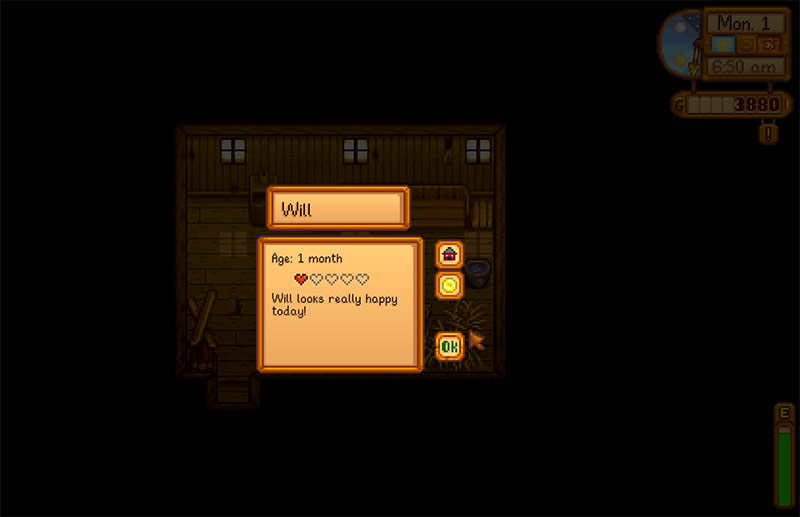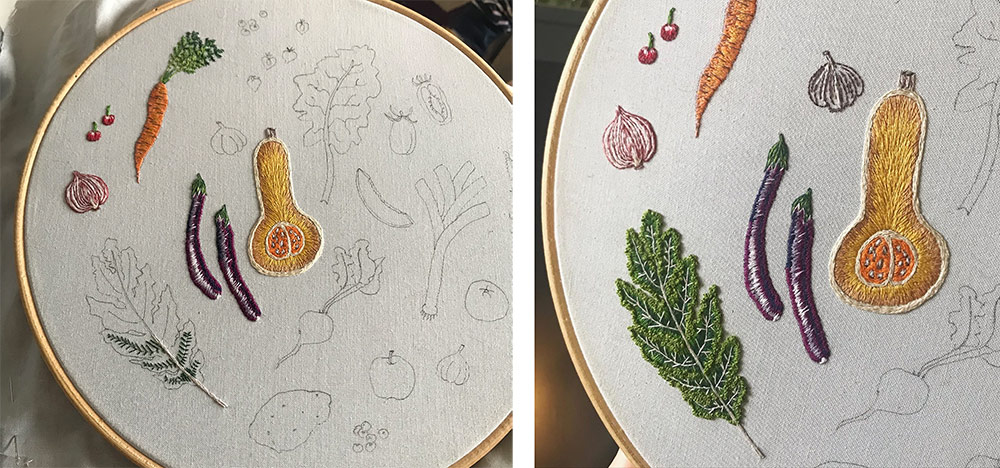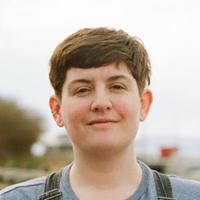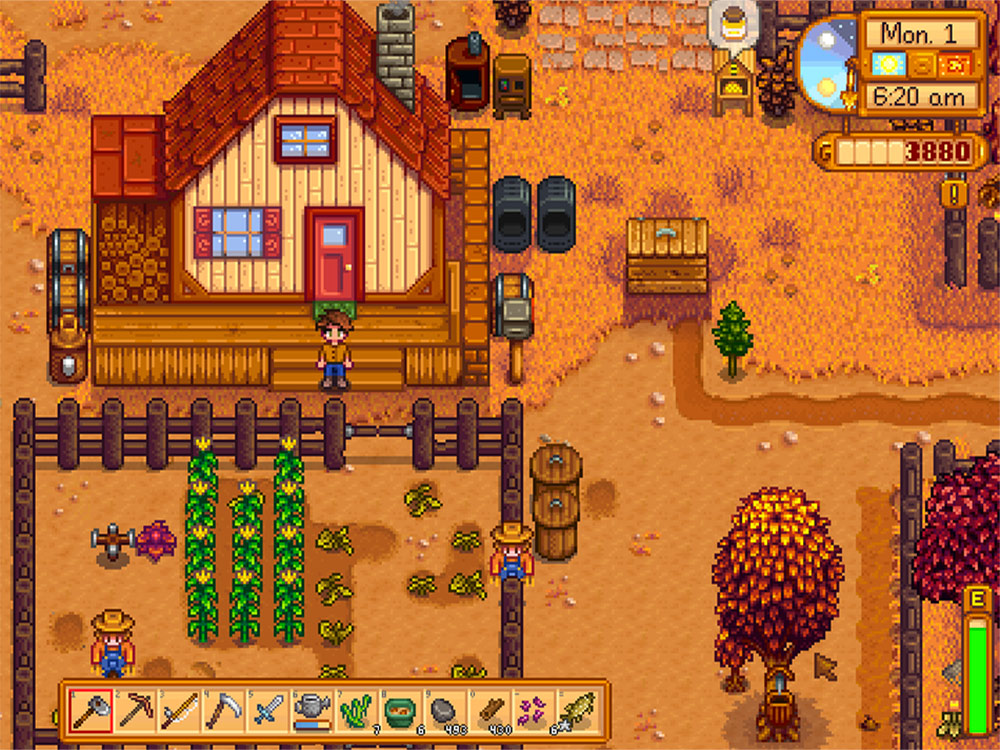Last week, I started a new round of Stardew Valley, a low-stakes video game where your player inherits a farm and leaves their soulless job in the city to grow parsnips and catch fish. I clothed my character in jeans and a khaki shirt, and gave them hair like how mine looks on good days.
And then my four-year-old noticed what I was doing and insisted we name the character after her. So they’re now named “Sinclair.”
My family flew to Vancouver on Christmas Eve, returning to tiskwat (Powell River) on Dec. 28; while there, we saw three family members, including Sinclair’s cousin, who is three months younger. They picked up where they’d left off from the summer — laughing, wrestling, arguing about wooden trainsets. They had a sleepover. The adults ate cheese and fretted about COVID and had some heart-to-hearts. We also watched the kids playing and felt grateful for the time we got to spend together.
After we returned home, Sinclair woke up sick. Sniffles, coughing, phlegmy. Then I got sick. Where we live, emergency PCR tests are available through the ER at the hospital, or you can make an appointment online to take a self-administered gargle test at a test site located in a shipping container in the rear hospital parking lot.
I applied for a test on Thursday afternoon but didn’t hear back until this Monday. All the while, we’ve been self-isolating. Friends dropped off prosecco on New Year’s Eve. I walked to the self-test site on Monday morning, but otherwise we haven’t left the house.
So we’ve been immersing ourselves in the virtual world of Stardew Valley — planting crops, giving gifts to other townspeople, mining ore in the local caves in order to upgrade our farm tools. We named our character’s cat after Sinclair’s cousin. When we got chickens — after chopping down enough in-game trees and earning enough in-game money, we could afford a coop — we named one after my partner, and one after his sister.
Every morning when our character wakes up, as my partner drinks coffee in our real-life living room, Sinclair and I pet his in-game chicken representative. “Will looks really happy today!” the game tells us.

In the game, we’ve grown parsnips, tomatoes, blueberries, kale — all things that, during the summer, we real-life grow in our garden. We’ve also grown corn and rice online, living vicariously through the game’s climate-agnostic optimism.
It wasn’t until Sinclair created her own “chickens” inside our real-life house — plucking some homegrown butternut squash from a shelf in the basement, declaring them chickens and naming them after her parent and aunt, too — that I began to reflect on what, exactly, we were doing with Stardew, other than killing time until our maybe-colds, maybe-COVID passed.
There was no return to preschool this week. All the friends who excitedly texted to make plans, fresh back from their holiday breaks — we had to tell we were self-isolating.
Stuck inside and sad that our short family visit may have precipitated illness in addition to some sorely needed human connection, we built a world inside our house, and made it provide us with imaginary versions of the things we were missing.
This isn’t a new thing: I played a lot of Stardew Valley last winter, like a lot of folks, while we were hunkering down and limiting in-person contact, too.
And in the fall, once I’d put my last garden bed to rest for the season, I began an embroidery hoop to document some of what I’d harvested: a halved squash, a carrot, strawberries, kale, chard, onions, garlic, blueberries, eggplants, lavender. Stitching together another substitute reality, in a way.

But playing this round of Stardew feels a bit different — a bit sadder, a bit more purposefully escapist.
In a piece for The Tyee last year, Cynara Geissler wrote about “risk budgets,” a framework used by disabled and chronically ill people to calculate risks associated with any given choice or decision.
“My calculations often go something like this: “Attending X is now ‘allowed,’ but is it ‘essential’?” Geissler wrote. “How much public transportation will I need to ride to access X? Can I expect that people I encounter are complying with mask wearing and social distancing when I’m en route, and when I arrive?”
During most of the pandemic, we’ve limited our household risk budget to Sinclair attending preschool. We put swimming lessons, the climbing gym, and seeing friends and family indoors on the backburner. We still haven’t even gone back to the dentist (for us, it’s a ferry ride away).
In the fall, just before Omicron hit, it finally felt safe enough to hang out indoors with a few friends. And then we decided to see our family in Vancouver.
In some ways, it’s tempting to see us getting sick after travelling over Christmas as a rebuke. Perhaps we should’ve waited until Sinclair turned five and could get vaccinated. A few days after we got home, the airline we’d flown on announced it was temporarily suspending all flights for two days — too many staff members were out sick with Omicron.
Our risk averseness has been, in part, to protect ourselves (Sinclair is too young to get the vaccine; I have a handful of weird, unpredictable health conditions I’d rather not roll the dice with). But it’s also been to protect others. My partner and I both work from home; neither of us want to be passing COVID to someone working the till at the grocery store, or our kid’s preschool teachers.
But it’s probably silly to see this as punishment, even if we find out that we actually did come down with COVID. Because getting sick is not a moral failing. And that small sliver of family time in Vancouver will keep us going for a while — as we FaceTime, send messages over WhatsApp and name video game chickens after each other.
On Twitter the other day, writer Carla Ciccone said she didn’t want her kid to grow up watching as much TV as she had as a child of the ’80s. “Then COVID said: the television shall raise this child as it raised you,” she tweeted.
The feeling is mutual.
Yesterday, we received good news via government text message: my COVID results were negative, and we can stop self-isolating as soon as we all feel well. Thanks to Omicron, and our close call, I think we’ll stay indoors a while longer, seeking solace in our virtual world.
Stardew’s not a perfect game. In some ways, it’s actually a bit of a virtual back-to-the-land fantasy that is no freer from colonialism than its real-life counterparts.
But given our current constraints, and until we can go back outside and plant real carrots again, we’ll seek goodness over perfection — petting our cousin-cat, feeding our aunt-chicken, replicating parts of the world we miss outside in this smaller, less complicated one. ![]()
Read more: Health, Coronavirus

















Tyee Commenting Guidelines
Comments that violate guidelines risk being deleted, and violations may result in a temporary or permanent user ban. Maintain the spirit of good conversation to stay in the discussion.
*Please note The Tyee is not a forum for spreading misinformation about COVID-19, denying its existence or minimizing its risk to public health.
Do:
Do not: